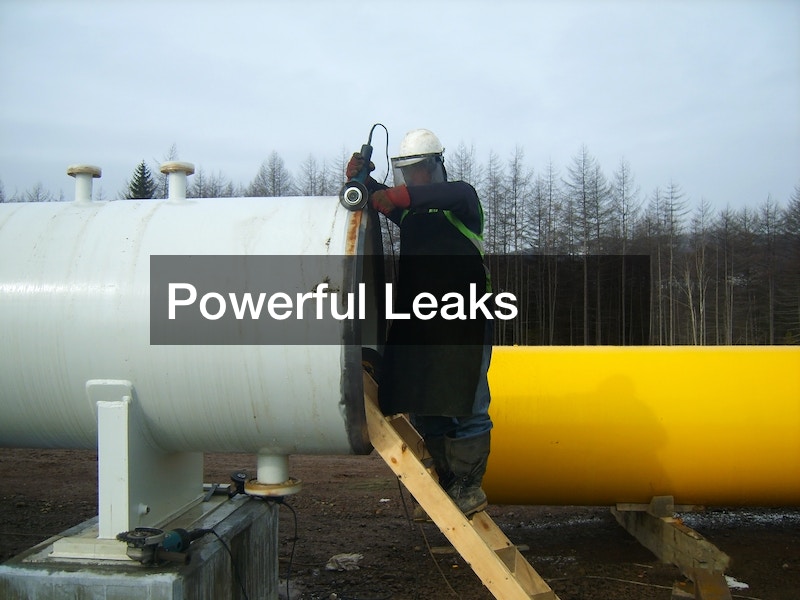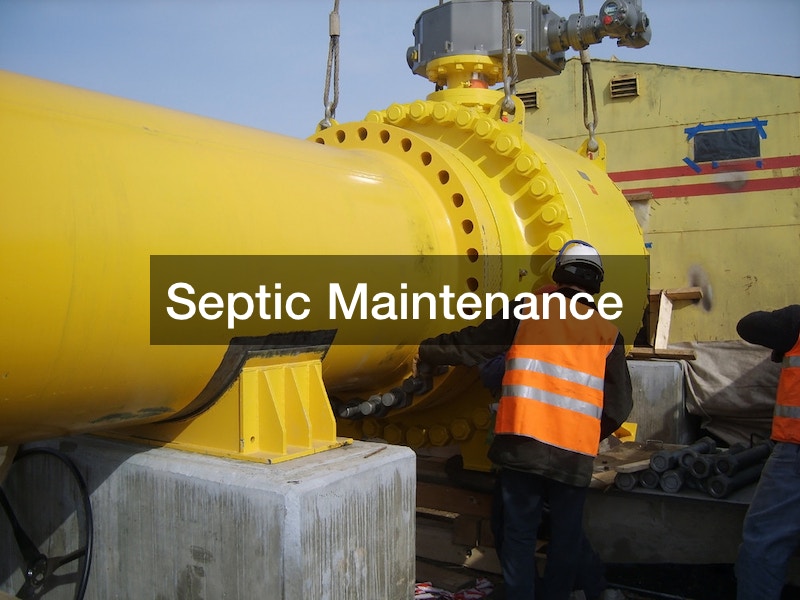

The plumbing system is an integral part of the proper functioning of any home. As a homeowner, you’ll want to be informed from the start on every step of the plumbing installation process to ensure everything is done right and no shortcuts are taken. This is the first step in prevention; it shields damages to your house due to faulty plumbing installation. Some of the most expensive plumbing repairs arise from issues that could have easily been resolved. This article will highlight some of the most expensive plumbing repairs that arise in the home and how you can prevent them from happening.
1. Powerful Leaks

Water leaks are common in homes and buildings. They’re caused by deteriorating piping, unregulated water pressure, blocked drains, poor workmanship, broken seals, tree root activity, damaged pipes, and rapid temperature changes. Plumbing leaks can be classified into three types: pinhole leaks, which are tiny and nearly undetectable leaks that usually occur in basements, crawlspaces, or areas infrequently used; moderate leaks are more prominent leaks that can be identified a bit faster, like P drain leaks or a leaking slab; and finally, there are the gusher/gushing leaks which are powerful leaks caused by big damages to main pressure pipes or high volume drain pipes.
Gusher leaks are one of the most expensive plumbing repairs you can do. When pipes explode, especially main pipes that carry water at high pressure or in large volumes, a lot of water rushes out, flooding the immediate area. This kind of leak is called a gusher water supply leak because of this high-velocity water ejection.
These plumbing leaks are visible and will demand immediate attention. Act swiftly and turn off the main water supply when a pipe bursts. This stops more damage from occurring, wastage of water, and the potential of water meeting electrical points. Plumbers usually use drain bags & holders to stop water flow during repairs.
Water damage is likely to result from gusher leak floods. Some water damages require a plumber to assess and repair, while others require water restoration companies. Plumbers are responsible for minor fixes and repair problems, while restoration companies handle more severe issues involving structure and standing water. They use professional drying equipment to remove moisture from walls and floors and have experience in mold remediation, construction, and repair.
2. Long-Ignored Repairs
Homee says small leaks can waste over 3,000 gallons yearly, draining your money over time. Identifying and fixing these leaks early can save hundreds of dollars in the long run. Leaky pipes can cause mold growth, rotting flooring, weakened wood support beams, and rusting of metal parts of the building.
If left unattended, these issues can put the home’s structure at risk of failure and require extensive repairs. The cost of water damage remediation can exceed $7,000. By ignoring plumbing problems, you may ultimately spend time and money on some of the most expensive plumbing repairs you could’ve avoided.
Plumbing repairs can be costly, messy, and time-consuming, so many delay them. However, it’s crucial to address these issues promptly. Finding reliable plumbing repair services is crucial for preventative maintenance. Getting qualified and available plumbing companies can be time-consuming and difficult.
Heavy rains damage sewer lines, bring backup problems, slow drainage flow, and damage lateral lines. All this affects the quality of water. On-demand home services are essential to address plumbing issues promptly to prevent costly consequences.
3. Paying for Experienced Workers

There is a cost of hiring a good plumber, but there’s an equal value in it as well. The value you get is a thorough maintenance of your plumbing system and mindful prevention of future issues that may come up. It takes an experienced plumber to maintain plumbing systems professionally, predict potential occurrences, monitor system degradation, and employ preventative measures to mitigate problems that may arise.
When hiring for plumbing services, only pick renowned companies that have been in operation for at least the past 10 years. Such a company will have experienced workers competent enough to handle repairs and introduce preventative measures to avoid future problems. Experienced workers are usually exposed to many situations. They’re able to work with a lot of varied materials and parts.
According to NirPlumbing, the average prices of typical plumbing jobs range from $45 to $150 per hour, depending on factors such as experience, union dues, overheads, spare parts, tools required, type of insurance, and the job type. The cost of services from an experienced plumber will naturally be high. However, some charges are simply too high, exaggerated prices. The most expensive plumbing repairs or jobs are related to large operations such as installing hydronic heating, remodeling kitchens and bathrooms, tankless water heater repairs, and repiping a home. An experienced plumbing contractor communicates effectively with their customers concerning the intricacies of the job, and they don’t overcharge.
4. Water Heater Issues
Your water heater ensures your home has a steady hot water supply. Having to fix your water conditioning system may be the most expensive plumbing repairs you can do. Several signs indicate a water heater is going bad before it becomes a crisis. These include insufficient hot water, leaky water heaters, inconsistent water temperature, poor water pressure, suspicious sounds, and water discoloration.
Suspicious sounds from the water heater can indicate a problem with the thermostat or heating elements. Water discoloration can be caused by rust or sediment buildup in the hot water heater. The lifespan of a water heater can vary depending on factors such as type, usage, maintenance, and water quality.
On average, a water heater’s lifespan is 8 to 12 years. Still, some can last up to 15 years or more if properly maintained. Risks associated with malfunctioning water heaters include water damage, electrical hazards, overheating, and blocked valves. Strange smells from hot water taps can be caused by bacteria or mineral buildup.
To solve the bacteria issue, increase the water temperature to 140 degrees Fahrenheit or clean your entire water heating system, especially your hot water tank. When cleaning your water tank, use chlorine bleach to remove dirt and kill germs. Low water pressure is common in older homes due to the piping system and mineral buildup.
In this case, install new pipes or check your inlet valve or clogged aerators. Call a water heater expert to diagnose the problem and develop possible solutions if the issue persists. Water heaters require equal attention as other installations for smooth operation.
5. Septic Maintenance

Regular septic tank maintenance is crucial to avoiding costly repairs and preserving your and your family’s health. A malfunctioning system can lead to serious health issues, such as hepatitis and dysentery, as well as the unpleasant smell of escaped waste. Annual maintenance ensures proper wastewater treatment, preventing drinking water and groundwater contamination.
Regular maintenance helps prevent unexpected bills and ensures the health of your septic tank system. Contract professional tank cleaning service providers to do your periodic septic tank cleaning. Keeping up with the tank’s maintenance ensures its durability, while neglect can lead to system failure.
According to EPA, regular septic system maintenance fees of $250 to $500 every three to five years are a bargain compared to repairing or replacing a malfunctioning system. Septic tank system repairs are among the most expensive plumbing repairs, costing between $5,000 and $15,000 for a conventional system.
Septic tank repair costs vary depending on the type of septic system. The cost includes fixing the lid, filter, pump, baffles, lines, and inspection. Overloading a septic tank with non-septic friendly waste, strong roots from trees in backyards, and heavy rainfall can cause it to crack.
Avoid using non-flushable waste, and be mindful of the septic tank’s drain field. Don’t plant trees near the tank or place heavy structures or pumps near it. Regular septic and sewer line cleaning can help prevent damages and future costs.
6. Drain Clogs
Clogged drains are common in indoor plumbing, but they can be fixed by understanding the causes. Bathroom drain clogs are caused by dirt, skin flakes, hair binding, and soap scum on drain pipes, reducing water flow. Kitchen sink drains clog when cooking grease or oil cake onto drain pipe walls. That’s why cleaning your home’s drainage pipes with the help of a professional plumber is recommended. They can provide tips and advice on keeping drains clear between cleanings.
Maintaining your plumbing system is crucial for preventing clogged drains. Minimizing food waste, using flushable wet wipes instead of toilet paper, and using drain catch devices are a few ways to minimize and prevent drain clogs. Use enzyme-based drain cleaners and drain cleaning equipment in bathroom sinks and showers. Avoid corrosive cleaning agents, which can eat away at pipes. Snaking a drain can damage fittings and cause a leak, so hiring a plumber for this is essential.
According to Forbes, the average cost of hiring a plumber to snake a drain is $250. The national average is around $100 for easy clogs and $360 for complex clogs. The cost varies depending on location, with the average hourly wage for a professional plumber in California being $35 and in Illinois at $45.
A flat fee is typically charged based on clog size and severity. An emergency plumbing company may charge an additional fee if a clogged drain requires immediate attention. This data indicates that drain clogs are among the most expensive plumbing repairs you can incur.
7. Flood Damage
Flooding can significantly damage your plumbing system, causing backups, drain clogs, and corrosive residue. Floodwaters can infiltrate sewer lines, causing wastewater to flow back into your home, leading to foul odors and health hazards. They can also dislodge tree roots or soil, requiring professional assistance to clear blockages.
Pipe damage and corrosion can result from silt, debris, and other contaminants. With repeated flooding over time, pipes may corrode, leading to leaks and breakage. To avoid extreme damage, prepare your home for flooding beforehand.
The damages listed are some of the reasons flood damage repairs are among the most expensive plumbing repairs a homeowner can incur. You can place your water heater and other equipment on raised platforms to lessen the chance of water damage. Get all electrical equipment and appliances off the floor. The basement is notorious for gusher leaks, and the floor bears the greatest brunt of the flood damage. Don’t attempt to diagnose or repair a leak before shutting off the water at the main shutoff valve, and don’t attempt repairs on your own.
Recovering from flood damage can be overwhelming, but the right support can help you get things back to normal. Dirty and damaged fixtures need replacement, while undamaged ones require cleaning with diluted bleach. Broken pipes may not be identified until after the flood water recedes. Dirty and damaged fixtures need replacement, while undamaged ones require cleaning with diluted bleach. Basement flooding repair is also common after flooding. Promptly seek professional water damage restoration services as soon as possible once you get any form of flooding in your house.
8. Sewer Line Issues
The sewer line running from your house to the main municipal sewer line is your responsibility. Don’t wait until things go wrong, thinking the local government will maintain and service your sewer line. Failing to monitor, maintain, and service your sewer pipes leads to pipe clogs, and in the end, you may need to completely replace your sewage pipes. Sewer pipe replacements are among the most expensive plumbing repairs you can incur.
There are ways to know when an impending sewer line issue is underway. One is the smell of rotten eggs or burning sulfur caused by sewer gasses backing up to the drains. This is no small matter as some gasses include hydrogen sulfide, a dangerous gas.
The toilet is frequently the source of gurgling noises that could indicate a sewage line problem. If you hear gurgling sounds following a flush, see bubbles, and smell sewage, a clog may be growing in the drain line. Slow drains are another sign of a possible blockage in the main sewer.
Despite how enjoyable it might be, owning a home has many responsibilities. Renters pay no costs for repairs or home upgrades because they are handled by the landlord. Homeowners are exclusively in charge of all costs associated with home maintenance. This emphasizes how crucial routine home maintenance inspections are. Be sure to do this and avoid some of the most expensive plumbing repairs.

